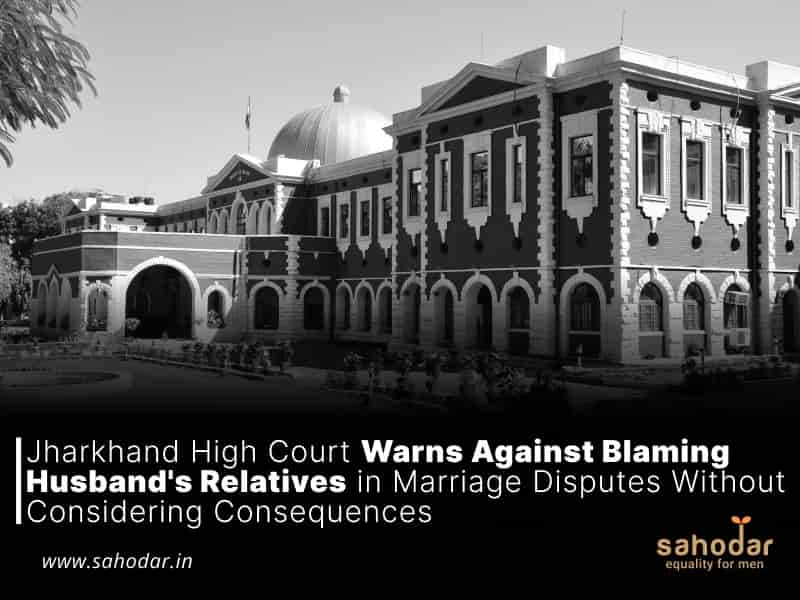The Jharkhand High Court canceled legal actions against a husband, noting a rising trend of involving the husband’s family members in marital conflicts without fully considering the consequences of a trial.
The Court held that “it would be unjust if the petitioners are forced to go through the tribulations of trial on the complaint, where, general and omnibus allegations are made.”
A petition was lodged seeking the quashing of the entirety of criminal proceedings, encompassing the Chief Judicial Magistrate’s cognizance of a complaint filed by a wife against her husband and his family, alleging mental harassment in connection with dowry demands.
Justice Sanjay Kumar Dwivedi observed, “It is revealed that general allegations are levelled against the petitioners. The complainant has alleged that all the accused harassed her mentally and demanded dowry…It is difficult to ascertain the role played by each accused in furtherance of the offence, which is the subject matter of the present case.”
Counsel Praveen Shankar Dayal represented the petitioners, whereas A.P.P. Bhola Nath Ojha appeared on behalf of the respondents.
The husband initiated proceedings under Section 9 of the Hindu Marriage Act (HMA) seeking the restitution of conjugal rights, which culminated in a compromise. However, subsequent to this resolution, a fresh dispute emerged between the parties, resulting in the wife voluntarily withdrawing from cohabitation with the husband.
The Court remarked that the complaint filed by the wife was an “afterthought… in retaliation of the said matrimonial suit.”
The Court noted, “Section 498-A of the Indian Penal Code was inserted in the statute with the laudable object of punishing cruelty at the hands of husband or his relatives against a wife particularly when such cruelty had potential to result in suicide or murder of a woman as mentioned in the Statement of Objects and Reasons of Act 46 of 1983.”
The Court held that the wife had levelled general allegations against the husband and his parents alleging that they harrassed her mentally and demanded dowry but “none of the petitioners have been attributed any specific role in furtherance of general allegation made against them.”
Following this, the Court dismissed the criminal proceedings and complaint against the husband and his parents.
Consequently, the High Court granted the petition.

